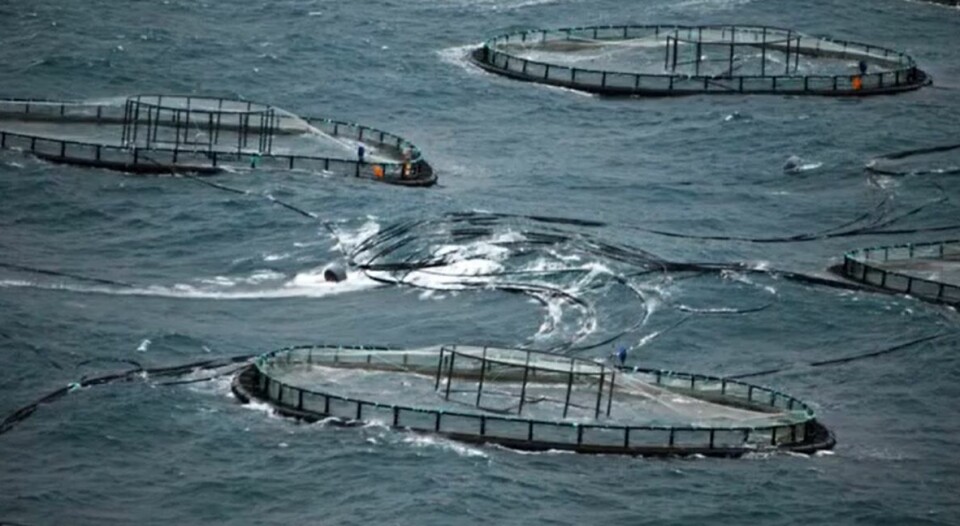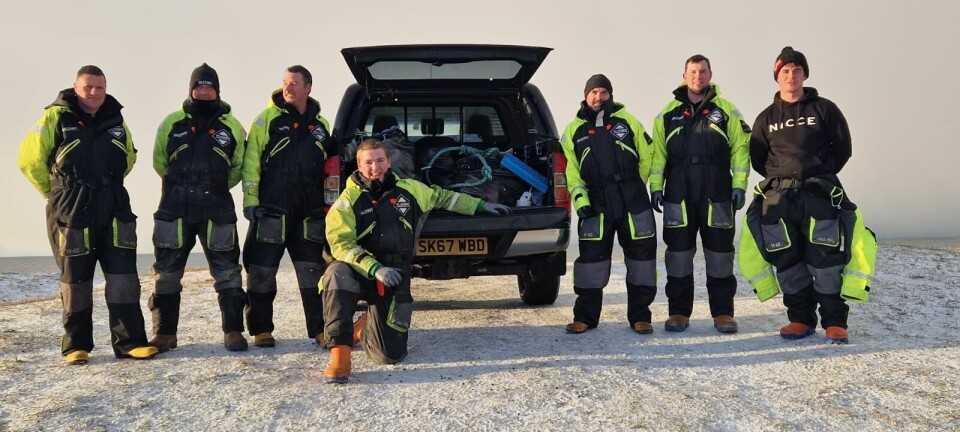
Number of escaped fish in Scotland fell 90% last year
The number of fish that escaped from Scottish salmonid farms last year was less than 10% of the number that escaped in 2020, newly released statistics show.
A total of 19,738 fish escaped in 2021, nearly all of them in one incident at Mowi Scotland’s high energy site at Hellisay, Barra. The company lost 19,686 Atlantic salmon with an average weight of 6.1 kg in an escape that was discovered on February 15. The incident was attributed to equipment damage.
The other escape occurred in September at the Etive 6 site operated by trout farmer Dawnfresh on Loch Etive, where 52 fish weighing an average of 900g escaped due to human error.
206,502 escapees in 2020
In 2020, a total of 206,502 salmonids escaped in Scottish waters. The biggest escape that year was of 73,684 fish with an average weight of 1.74 kg from Mowi’s Colonsay site on January 17. It was caused by failure of a pen in a storm.
The second-largest escape in 2020 was of 62,828 fish with an average weight of 400g from the Scottish Salmon Company’s Portree site. The incident was caused by a seal attack on a pen.
The escape at Hellisay last February was the third at the site in the space of 27 months and resulted in Mowi being issued with an enforcement notice by government agency Marine Scotland.
Ben Hadfield, Mowi’s chief operating officer, Farming Scotland, Ireland & Faroes, said at the time: “We received an enforcement notice from Marine Scotland, which I thought was fair given the incidents at this site, and whilst we are pleased with the exceptional water quality and good biological performance of our fish in the Hellisay site, we are obviously disappointed with our containment record.”
Bigger pens
Mowi said in May that it intended to seek permission to use 200-metre circumference pens at the site because simulations showed that larger, high-specification high-density polyethylene pens perform better in big storm events.
It added that it had established a multidisciplinary team consisting of its most experienced farm managers from the Faroes, Ireland, Norway and Scotland and a range of consultancy services such as marine engineers and wave climate analysts to provide recommendations on what is required to ensure the farm defends against a “one in 200-year” storm event.
This week, Hadfield said: “As part of the remedy we removed all salmon from our Hellisay site last December, and the site currently sits fallow. Our company looks forward to working with regulators and other stakeholders to prove the expected performance of 200 metre HDPE cages at this exposed location.”
‘IT issues’
The Scottish Government usually provides information about a fish escape on the Scotland’s Aquaculture website shortly after a fish farmer has notified authorities about the incident but did not update the site throughout 2021. It was updated this week.
“IT issues have limited the amount of data available on the Scotland’s Aquaculture website. The system has now been updated and the most up to date information on fish farm escapes is available here,” a government spokesperson said.




















































